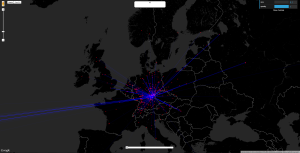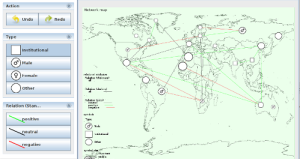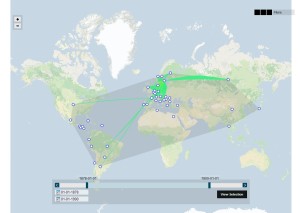Writing Session
On the second day of our workshop we opened our day’s discussion with a round of lightning talks in which participants were invited to comment or pose questions on their mapping and visualisation methodologies as well as to broader theoretical questions related to their use in the study of history. Some participants expanded on points
+ Read More




Recent Comments